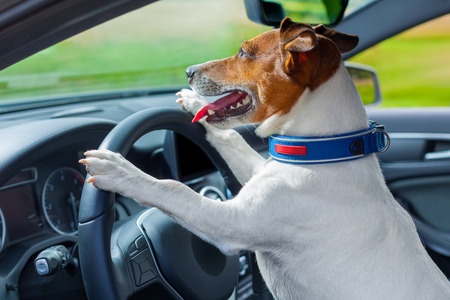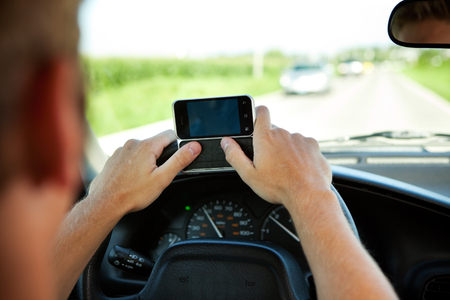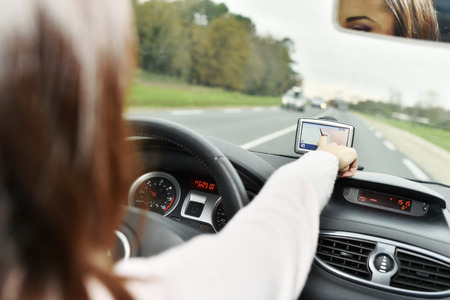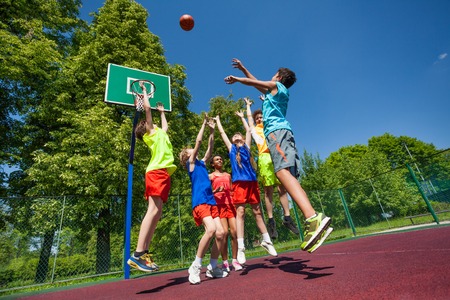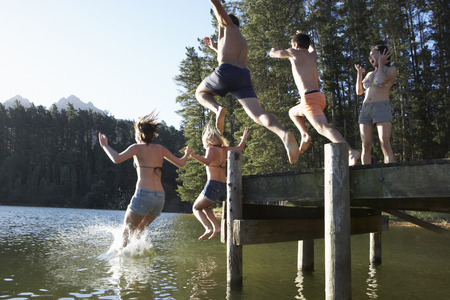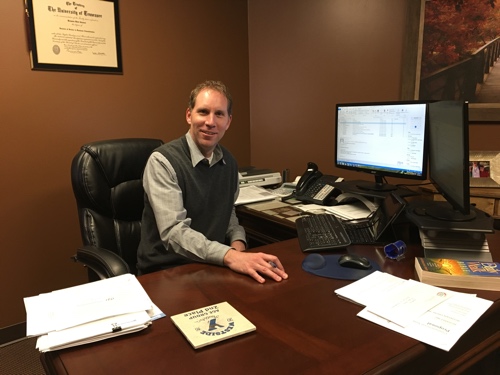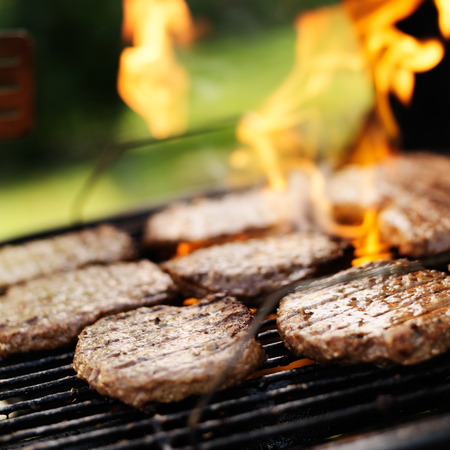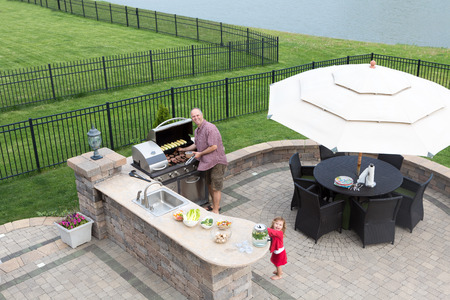A story was reported on NBC news a few years ago. Julie was grilling hot dogs. She looked outside and “saw 5-foot flames spewing from her family’s gas grill.” Her friend emptied their kitchen fire extinguisher on the fire, but it didn’t stop. She called 911 who advised her to wait until the flames died down and then shut off the propane. Once the fire was out, she saw that the knobs and the shelf were melted off!
Julie was lucky. She caught the fire before the tank blew up or anyone was hurt. It could have been worse.
Don’t let Julie’s experience happen to you. Keep your outdoor barbecuing experience fun and reduce your risk with these tips.
Safety Checks
Many gas grill fires happen when using a grill that has been left inactive for a period of time. They can also happen just after refilling and reattaching the gas container. It is important to check them thoroughly.
Check your gas cylinder hose for leaks before your first use each year (or periodically if you use your grill year-round).
- Bubble test: Apply a light soap and water solution to the hose. A propane leak will release bubbles.
- Smell test: Pay attention for the smell of gas.
Check for blockages in the tubes that might be caused by insects, spiders, or food grease. If found, a pipe cleaner or wire can be used to push the blockage out of the tube.
Check for hoses in bad condition. In addition to checking for leaks, look for any cracking, brittleness, or holes. Ensure that any hoses or tubing have no sharp bends.
Position gas hoses properly. Move them as far away from hot surfaces or where hot grease might drop. If that is not possible, install a protective heat shield.
Check your connectors. Replace any that are scratched or nicked.
If You Find a Leak or Break
If you find a gas leak, by smell or the soapy bubble test, and there is no flame, turn off both the gas tank and the grill. If the leak stops, get the grill serviced by a professional before using it again. If the leak does not stop, call the fire department.
If you smell gas while cooking, immediately get away from the grill and call the fire department. Do not move the grill.
Keep fire/heat sources away from a leaking grill. This includes, but is not limited to, cigarettes, matches or any open flame.
Do not attempt repairs yourself. Go to an LP gas dealer or qualified repair person.
Starting the Grill and While Cooking
Open the lid before turning on the gas — always! Gas can build up inside a closed lid. If ignited, the lid can blow off and cause injuries and/or burns.
If the flame goes out while cooking, turn the grill and gas off and wait at least 5 minutes before re-lighting it.
Only use a grill outdoors. It should be at least 10 feet away from any building. Do not use it in a garage, breezeway, carport, porch, or under a surface that can catch fire.
After Cooking
Completely close off the valve.
Store equipment correctly:
- Your grill and propane tank should be stored outside and away from your house.
- Flammable liquid (LP gas, gasoline, etc.) containers should be stored upright and away from the grill. Never store them indoors.
- A filled gas container should never be kept in a hot car or car trunk. Heat causes gas pressure to increase. This causes the possibility of the relief valve opening and releasing gas into the vehicle.

